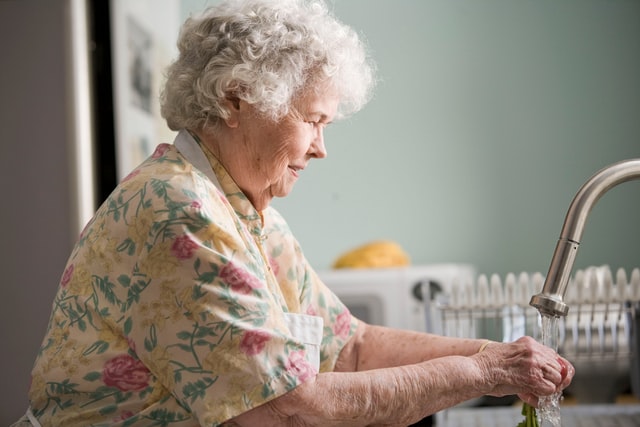Your aging parents need love and care to stay healthy and safe. While caring for the elderly can be difficult due to the demands involved, it’s your duty to provide all they need for their well-being and safety. Since most seniors prefer aging in place rather than in assisted living, caring for your aging parents at home or hiring a caregiver increases empathy and helps you build a stronger relationship with them.
As opposed to assisted living, where a schedule is followed, caring for your aging parents at home gives them a sense of purpose as they can undertake different activities every day. Besides keeping a close eye on your parents, caring for them enables you to rebuild the family unit because you can organize family reunions more often. It also gives you peace of mind as you are assured of their health and well-being. Below are tips for taking care of your aging parents.
1. Invest In A Medical Alert System
A medical emergency or a fall can occur at any time, but if you aren’t around to help your parents on time, the consequences may be dire. Investing in a medical alert system keeps your parents safer and gives you peace of mind knowing they can get help with the push of a button. Other beneficial features include carbon monoxide detectors, GPS trackers, check-ins, and a reminder for when to perform specific tasks such as taking medications that enhance your parents’ health and safety.
Additionally, this system allows seniors to be independent and go about their everyday lives without relying on anyone, boosting their confidence. Comparing living well companion costs help you choose the system that best suits your budget and your parents’ needs.
2. Understand Their Needs
Understanding your parents’ needs helps you determine how much care they need and at what cost. To know what they need, consider assessing their medical needs, home safety, mobility, cognitive health, personal hygiene, family support, meal preparation, and social interaction. Determine how much support they’re getting, along with how much more help they need and record all the details in a caregiving diary to track your parents’ needs. This can help you determine how much money you’ll need without asking for help.

3. Keep Them Physically Active And Engaged
Talk to your parents about the benefits of staying physically and mentally active and engaged and encouraging them to incorporate it into their daily routine. This can help them build strength and flexibility, lower the chances of falling, and reduce feelings of anxiety.
Seniors can also suffer from isolation and loneliness due to a lack of connection with peers and a support system. This may lead to anxiety, depression, and increased dementia symptoms. Consider having your parents join a social club to connect with others, eliminating stress. To keep your parents engaged, enroll them in a senior exercise program, take a walk together, and find the activities they enjoy doing.
4. Create A Healthy Diet Plan
A well-balanced diet is essential for your aging parents. This helps them stay energized, maintain a healthy weight, and get all the nutrients they need. It also reduces the risk of them contracting chronic illnesses like diabetes and heart disease. A poor diet for your parents leaves them with weak muscles and bones, increasing their vulnerability to infections.
To create a healthy diet plan, give them foods rich in vitamins, fiber, minerals, and nutrients. Omit salt, processed sugars, and saturated and trans fats. With the help of a nutritionist or a doctor, adjust your parents’ diet if they have any underlying health conditions.

5. Include Them In Any Decisions That Affect Them
As seniors age, they get concerned about losing their independence, so don’t let them lose control over their life. Involving your parents in every decision that concerns them makes them see you as a partner and not someone trying to take control of them. If their independence doesn’t pose a threat to their lives, don’t force changes. Using less intrusive approaches, slowly introduce the changes you wish to make and increase as you go.
6. Don’t Forget Home Modifications
Home safety hazards increase over time, making it easier for the elderly to trip, fall, or get injured. Consider doing simple home modifications like clearing floors and walkways of clutter, rugs, and cords. Add stair railings all over the house and grab bars in the bathroom. Update lighting to ensure all rooms and walkways are well-lit and the switches are easily accessible. Ensure appliances are within reach and that they function correctly. You can also give them a room on the ground floor, so they don’t always have to climb the stairs.
Consider widening doorways and changing the flooring to ensure it isn’t slippery. You can also invest in smart home devices to enhance safety and security.
Endnote
Taking care of your aging parents can be overwhelming, but rewarding and satisfying as well. Consider applying the above tips when caring for them to ensure their mental, physical, and emotional well-being.
*collaborative post


































